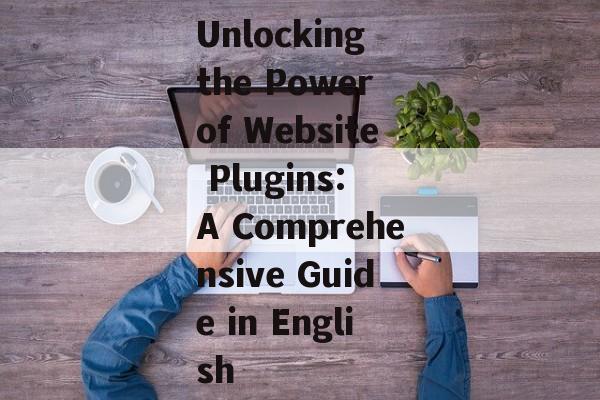Unlocking the Power of Website Plugins: A Comprehensive Guide in English
In the ever-evolving digital landscape, websites have become the cornerstone of online presence for businesses, organizations, and individuals alike. One of the key components that elevate websites from simple pages to dynamic platforms is the use of plugins. Plugins are essentially software add-ons that enhance the functionality of a website, providing users with a more engaging and interactive experience. This article delves into the world of website plugins, exploring their significance, types, benefits, and how to effectively utilize them.
Understanding Website Plugins
First and foremost, let's define what a website plugin is. A plugin is a software application that adds a specific feature to a website, typically by extending the capabilities of a web content management system (WCMS) like WordPress, Joomla, or Drupal. These applications can range from simple contact forms to complex e-commerce solutions, and they are designed to be easily installed and integrated into existing websites.
The Significance of Plugins
The significance of website plugins cannot be overstated. They play a crucial role in:
1、Enhancing Functionality: Plugins can add a wide range of functionalities to a website, from SEO optimization to social media integration, without the need for custom coding.
2、Streamlining Workflow: With plugins, website administrators can automate tasks, manage content, and handle user interactions more efficiently.
3、Improving User Experience: Plugins can enhance the user interface and user experience (UI/UX) by adding interactive elements, improving navigation, and providing a more engaging content presentation.
4、Competitive Edge: By leveraging plugins, websites can stay competitive by adopting the latest trends and technologies without significant development costs.
Types of Website Plugins
There are several types of website plugins, each serving a different purpose:
1、SEO Plugins: These plugins help optimize a website for search engines, improving visibility and organic traffic. Examples include Yoast SEO for WordPress and All in One SEO Pack.
2、Security Plugins: Security plugins protect websites from cyber threats, including malware, brute force attacks, and SQL injection. Sucuri and Wordfence are popular security plugins for WordPress.
3、E-commerce Plugins: E-commerce plugins enable websites to sell products and services online. WooCommerce, Magento, and Shopify are leading e-commerce platforms with robust plugin ecosystems.
4、Social Media Plugins: These plugins integrate social media features into a website, such as sharing buttons, social login, and social feeds. Examples include Social Media Feeds and Monarch.
5、Content Management Plugins: These plugins help manage and display content effectively, such as caching plugins (W3 Total Cache), page builders (Elementor), and content scheduling tools (Revive Old Posts).
Benefits of Using Website Plugins
The benefits of using website plugins are numerous:
1、Cost-Effective: Plugins can be installed and used at a fraction of the cost of custom development.
2、Time-Saving: Plugins save time by providing ready-made solutions that can be implemented quickly.
3、Customization: Many plugins offer customization options, allowing website owners to tailor the functionality to their specific needs.
4、Community Support: Plugins often come with a community of users and developers who provide support, share tips, and offer updates.
How to Effectively Utilize Website Plugins
To make the most of website plugins, consider the following tips:
1、Research and Choose Wisely: Spend time researching plugins to find the ones that best fit your needs. Look for well-rated, frequently updated plugins with good documentation.
2、Test Before Implementation: Before installing a plugin on a live website, test it on a staging environment to ensure it works as expected and doesn't conflict with other plugins or website elements.
3、Keep Plugins Updated: Regularly update plugins to ensure they remain secure and compatible with the latest web technologies and WCMS versions.
4、Limit the Number of Plugins: While plugins can enhance functionality, too many can slow down your website and cause conflicts. Only install what you need.
5、Monitor Performance: Regularly monitor the performance of your website to ensure plugins are not negatively impacting load times or SEO.

In conclusion, website plugins are an invaluable tool for enhancing the functionality, user experience, and overall performance of a website. By understanding the significance of plugins, their types, benefits, and how to effectively utilize them, website owners can create dynamic, engaging, and competitive online platforms. Whether you're looking to optimize your website's SEO, add e-commerce capabilities, or improve security, the right plugin can make all the difference.
相关文章
